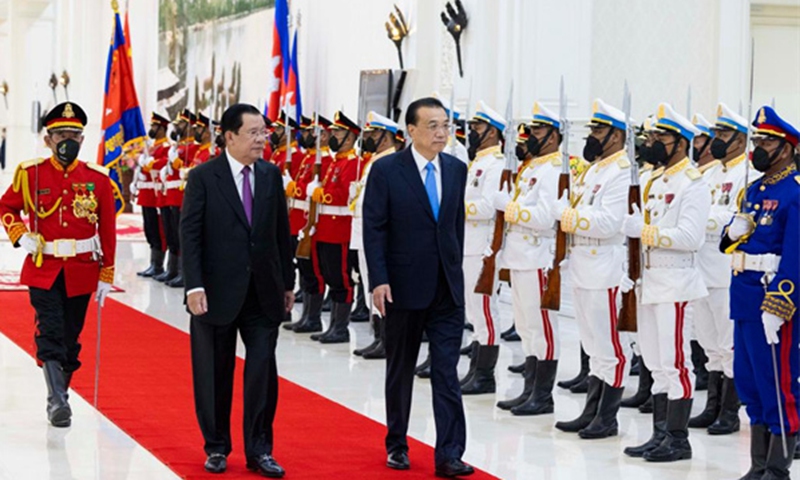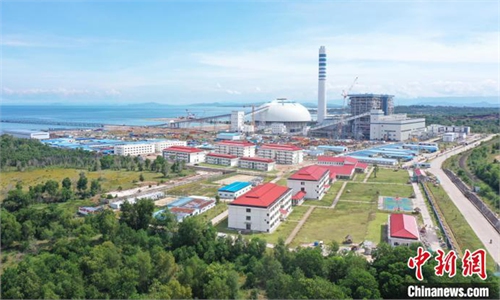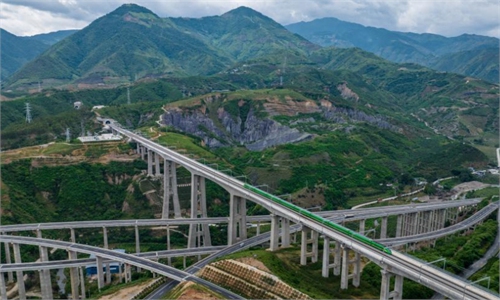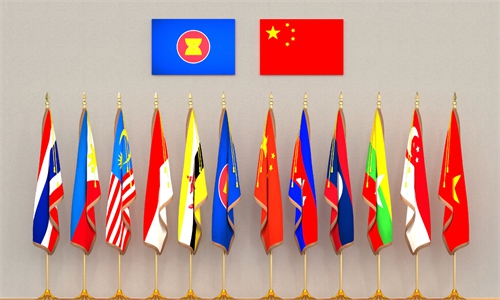
Cambodian Prime Minister Samdech Techo Hun Sen holds a grand welcome ceremony for Premier Li Keqiang prior to their meeting at the Peace Palace in Phnom Penh, Cambodia, Nov 9, 2022. Photo: Xinhua
The ASEAN summits are set to kick off on Friday in Phnom Penh, Cambodia, with leaders of ASEAN and regional countries gathering to discuss regional and global challenges. Analysts said that amid increasing geopolitical risks, ASEAN would focus more on development and be more cautious about being involved in conflicts of major powers.
The summits are the first time the events are being held in person since the start of the COVID-19 pandemic. ASEAN leaders will also meet external partners during the ASEAN Plus Three Summit, the East Asia Summit and summits with the UN, China, Australia, Canada, India, Japan, South Korea and the United States, media reported.
Chinese Premier Li Keqiang is also scheduled to attend the series of events, according to China's Foreign Ministry.
Themed as "ASEAN A.C.T: Addressing Challenges Together," ASEAN and regional leaders will use these summits to discuss the situation in Myanmar along with regional and international developments. Topics related to the Ukraine crisis would also be discussed, as Ukrainian President Volodymyr Zelensky is expected to deliver a speech via video conference, media reported.
China has always supported ASEAN for Southeast Asian leaders to mediate in the current crisis in Myanmar. Amid increasing conflicts and geopolitical risks, ASEAN's role in promoting regional multinational relations and engaging in international development has been highlighted, but the ongoing summits will focus more on regional development, Li Kaisheng, a research fellow and deputy director at the Institute of International Relations of the Shanghai Academy of Social Sciences, told the Global Times.
Besides Myanmar, post-COVID era recovery, the food and energy crisis, and regional connectivity will top the agenda of the ASEAN summits. Also, with negotiations for the adoption of a Code of Conduct (COC) in the South China Sea proceeding, information related to these topics will also attract attention, said Li.
Although some Western media have hyped that the South China Sea would be a "burning" issue during the summits, the current situation in the South China Sea is controllable and related countries have accumulated rich experience in managing disputes - this has also offered a friendly environment for the meetings between China and ASEAN countries, said Chen Xiangmiao, an assistant research fellow at the National Institute for South China Sea Studies.
During the summits, Premier Li is expected to work with ASEAN leaders in further promoting the Regional Comprehensive Economic Partnership Agreement (RCEP) and major projects of the Belt and Road Initiative and discuss ways to facilitate deeper integration of the industrial, supply and value chains and strengthen connectivity between China and ASEAN, analysts said.
US President Joe Biden is also reportedly to attend the summits in Cambodia in an effort to step up engagement with ASEAN, a move that some observers said was aimed at luring ASEAN to decouple from China when global governance is set to embrace an "Asian moment" through several important multilateral meetings that ASEAN countries will host this year, including the G20 summit, APEC and the leaders' meeting on East Asia cooperation.
The Ukraine crisis has given many countries in the world a clearer understanding of the international situation, and the current plight faced by the EU is also raising the alarm with more ASEAN countries of the disastrous results of getting involved in conflicts of great powers, Li said.
Moreover, unlike the EU, which has tightly bound itself with the US, ASEAN has insisted on diplomatic independence, acted more prudently in balancing relations with China and the US, and avoided choosing sides, said Li, noting that this has also helped prevent the region from being dragged into turmoil.



